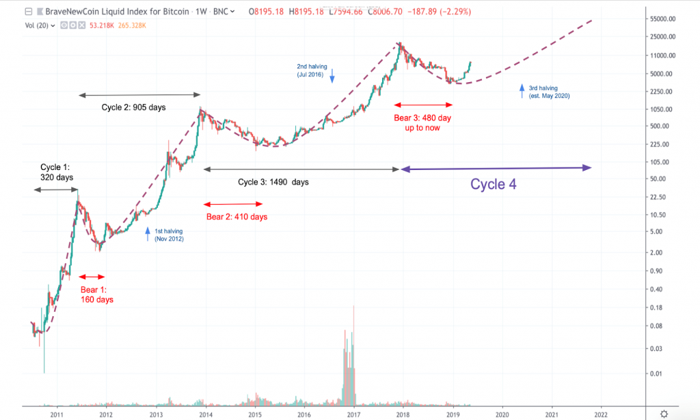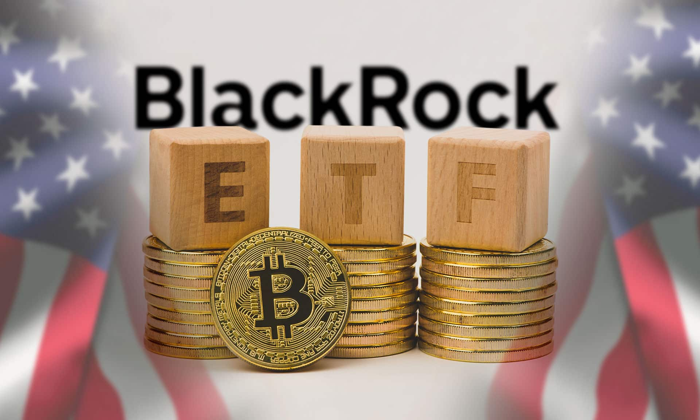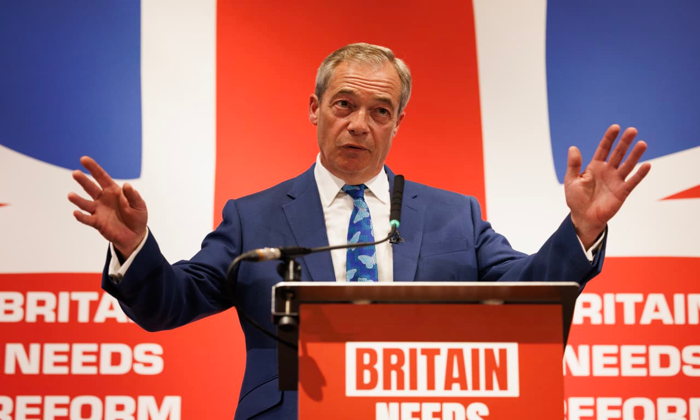Bitcoin adoption has gained momentum in recent years, fueled by significant events such as President Trump’s potential removal of Federal Reserve Chairman Jerome Powell. This political turbulence could spark a shift in investor sentiment, driving more individuals towards cryptocurrency investments as a hedge against traditional asset volatility. Similar to the rising interest in safe-haven assets seen during the Turkey Lira crisis, where central bank interference led to a collapse of the domestic currency, U.S. investors may seek refuge in Bitcoin to protect their wealth. The recent devaluation of the USD, compounded by fears of Federal Reserve interference, makes Bitcoin’s role in the financial landscape even more prominent. Understanding Bitcoin adoption within this context highlights its emergence as a viable alternative for those wary of government control over monetary policy.
The recent surge in interest surrounding Bitcoin adoption can also be framed as a response to economic uncertainty and geopolitical factors influencing market dynamics. As people increasingly look for alternatives to conventional financial systems, cryptocurrencies are being viewed not just as digital currencies, but as essential tools for safeguarding wealth. Market analysts suggest that political actions, such as those proposed by Trump regarding monetary policy changes, can significantly affect asset valuations and investor behaviors. This ongoing evolution underscores the necessity for individuals and institutions to consider Bitcoin and other cryptocurrencies in their investment strategies, especially in light of historical currency crises such as that experienced by Turkey. By recognizing Bitcoin as a modern financial instrument, investors may better position themselves against potential financial instability.
The Impact of Political Decisions on Bitcoin Adoption
The potential firing of Federal Reserve Chairman Jerome Powell by President Trump represents a significant political maneuver with potential ramifications not just for the U.S. economy, but also for the evolving landscape of cryptocurrency adoption. Historical precedents show that governments challenging central bank operations can lead to eroded trust in traditional currencies, prompting investors to seek alternative assets. Bitcoin adoption could surge as a consequence, paralleling trends observed in Turkey amidst its currency crisis, where stakeholders opted for cryptocurrencies as a safe haven.
Moreover, the psychological aspect of investor confidence cannot be overlooked; as political tensions mounted, a flight to secure assets like Bitcoin and stablecoins became increasingly appealing. Such behavior signals a broader acceptance of cryptocurrencies as viable investment routes, particularly in uncertain times. With the current trajectory of discontent around the Federal Reserve’s policies, Bitcoin’s appeal as a decentralized alternative could gain traction, encouraging more individuals to explore its benefits.
Lessons from Turkey’s Currency Crisis and Bitcoin’s Resilience
Turkey’s plummeting lira serves as a vivid example of the consequences that can arise from government interference with central banks. President Erdogan’s decisions to intervene directly in monetary policies not only weakened the lira but also illustrated how rapidly investor sentiment can change when trust in fiscal management erodes. Bitcoin’s resilience during similar circumstances indicates its growing role in the global economy, particularly as investors look to escape the volatility of fiat currencies. The capital flight into cryptocurrencies from Turkey showcases how Bitcoin adoption can be catalyzed by economic instability.
In light of this, American investors might reflect on Turkey’s experience as Trump considers his options with the Federal Reserve. If Powell is dismissed, and economic conditions deteriorate, we could speculate a surge of interest in Bitcoin as a hedge against inflation and currency devaluation. This scenario is particularly salient given Bitcoin’s characteristics as a limited supply asset, making it attractive in anticipation of potential financial crises. Thus, Turkey’s lira crisis not only provides historical perspective but also forecasts potential pathways for Bitcoin adoption in regions experiencing similar dilemmas.
The Role of Safe-Haven Assets in Times of Economic Distress
In an environment marked by increasing economic uncertainty, the concept of safe-haven assets becomes critically important. As trust in fiat currencies falters, investors often turn to alternative investments that promise stability in value. Bitcoin, along with precious metals like gold, is frequently recognized as a safe-haven asset that can insulate against currency fluctuations and geopolitical upheaval. Observing current market trends, it is clear that the potential volatility introduced by Trump’s proposals could lead to a significant appetite for Bitcoin as a financial refuge.
Additionally, the concept of safe-haven assets like Bitcoin is not just about preserving value but also about the opportunity for capital growth during downturns. As inflation rates soar and the purchasing power of national currencies declines, more individuals may choose to allocate their resources in cryptocurrencies, seeing them as a viable strategy to safeguard and eventually increase their wealth. This shift highlights the importance of education and awareness regarding Bitcoin adoption, as a growing number of investors seek dependable alternatives to traditional investments.
Trump’s Conflicts with the Federal Reserve: Implications for Investors
Trump’s ongoing conflicts with the Federal Reserve highlight a significant disconnect between political agendas and economic realities. The critical comments aimed at Jerome Powell and the contemplation of his dismissal bring to light potential vulnerabilities in the monetary policy framework that governs the U.S. economy. For investors, this tumult may represent a warning signal, suggesting that traditional investments could be at risk should the Fed’s credibility continue to wane. In such scenarios, many may begin to lean towards Bitcoin and similar assets, which operate independently of government control and centralized monetary policies.
Moreover, the situation necessitates that investors continuously evaluate their portfolios in the context of potential shifts in fiscal leadership. If Trump’s criticisms ultimately yield drastic policy changes that destabilize the dollar, Bitcoin’s appeal is likely to increase as a hedge against uncertainty. Investors who remain cognizant of these developments may proactively diversify their holdings, incorporating more cryptocurrencies to shield themselves from potential devaluation of the USD and to adapt to the fluid financial landscape.
Understanding Cryptocurrency Investments Amidst Market Volatility
Investing in cryptocurrencies during periods of heightened market volatility can be both exhilarating and daunting. With fluctuating values and rapid price movements, Bitcoin and other cryptocurrencies often reflect broader market sentiments, making them both riskier yet potentially rewarding. As political actions such as Trump’s potential moves regarding the Fed unfold, investors are prompted to reassess their strategies for cryptocurrency investments to capitalize on opportunities while managing risks effectively.
Amidst such volatility, education becomes pivotal for those invested in Bitcoin or considering entering the market. Recognizing market patterns, understanding blockchain technology, and being aware of regulatory developments will enhance decision-making for investors. Cryptocurrencies can emerge as a powerful asset class when approached with diligence, especially in uncertain economic landscapes. Consequently, maintaining informed perspectives can empower investors to leverage Bitcoin effectively, amidst market fluctuations and geopolitical influences.
Federal Reserve Interference: A Catalyst for Bitcoin Growth
The Federal Reserve’s policies play a crucial role in shaping financial markets, and interference from political figures can significantly alter the landscape for assets like Bitcoin. If Trump’s reported intentions to dismiss Jerome Powell come to fruition, the markets may react negatively, triggering a reevaluation of the dollar and the potential for accelerated Bitcoin growth. Observations from international markets, like that of Turkey, suggest that such central bank manipulations can catalyze interest in decentralized currencies as alternatives.
Indeed, the effects of Federal Reserve actions extend beyond the U.S., influencing global perceptions of monetary stability. As investor confidence in fiat currencies diminishes due to perceived instability, Bitcoin’s reputation as a decentralized asset that thrives on economic uncertainty may grow. This potential shift could encourage a broader base of investors to engage with cryptocurrency markets, creating new opportunities for Bitcoin adoption and positioning it as a major player in the evolving financial ecosystem.
The Correlation Between Bitcoin and Stock Market Trends
The relationship between Bitcoin and traditional stock markets is an intriguing dynamic worth exploring. Often, Bitcoin mirrors the sentiment of mainstream financial markets; when stocks decline, Bitcoin has shown resilience or even growth. This behavior can indicate Bitcoin’s emergence as a distinct asset class with unique appeal to investors seeking alternative pathways for capital appreciation. The current turmoil in Wall Street alongside the discussions of potential Federal Reserve changes may further solidify Bitcoin’s position as a safe-haven asset amidst stock market fluctuations.
As Bitcoin demonstrates independence from traditional market forces, investors might start to view it as a viable, hedging tool against broader economic downturns. With rising interest in cryptocurrencies driven partly by concerns over stock performance, recognizing these correlations could become key for savvy investors. As stocks falter, Bitcoin adoption may continue to gain momentum, as individuals seek value outside conventional marketplaces, paving the path for a more diversified investment strategy.
Future Prospects for Bitcoin in Light of Global Financial Instabilities
As we look to the future, the prospects for Bitcoin as a dominant currency alternative appear increasingly promising. Economic instabilities, driven by political decisions and central bank interference, have historically led to greater interest in Bitcoin. With Trump’s proposed actions against the Federal Reserve and ongoing financial crises in other regions, it is conceivable that we may see a similar trajectory for Bitcoin that was witnessed in Turkey’s recent financial challenges.
Investors globally may gravitate towards Bitcoin as a hedge against devaluing currencies and seek to preserve their wealth in unpredictable markets. This could lead to a broader acceptance of Bitcoin as a legitimate form of currency in multiple sectors. As Bitcoin adoption continues to evolve, its trajectory will depend on how effectively individuals and institutions recognize its benefits during times of economic distress, potentially solidifying its status as a cornerstone of future financial systems.
Frequently Asked Questions
How could Trump firing Powell influence Bitcoin adoption?
If President Trump goes through with firing Jerome Powell, it may lead to increased Bitcoin adoption. The instability surrounding the Federal Reserve and the U.S. dollar could drive investors toward cryptocurrencies as a safe-haven asset, similar to past trends observed during economic uncertainty.
What can we learn from the Turkey Lira crisis about Bitcoin adoption?
The Turkey Lira crisis exemplifies how central bank interference can lead to currency collapse, prompting citizens to seek refuge in Bitcoin and stablecoins. This historical context highlights how economic instability can accelerate Bitcoin adoption as individuals look for alternatives to traditional currencies.
Why might Bitcoin be considered a safe-haven asset amid Federal Reserve interference?
Amidst Federal Reserve interference, such as potential changes in leadership, Bitcoin is viewed as a safe-haven asset due to its decentralized nature and resistance to censorship. Investors may flock to Bitcoin during times of uncertainty, potentially increasing its adoption.
In what way does the current cryptocurrency investment climate relate to traditional market instability?
The current cryptocurrency investment climate, particularly regarding Bitcoin, is closely tied to traditional market instability. Events like the potential firing of the Federal Reserve chairman can shake investor confidence in the dollar, leading more people to invest in Bitcoin as an alternative.
How does Bitcoin’s rise relate to the impact of central bank policies?
Bitcoin’s rise often reflects reactions to central bank policies. Central bank interference, such as actions seen in Turkey and possibly the U.S., can diminish trust in fiat currencies, prompting individuals to adopt Bitcoin for its perceived stability and resistance to manipulation.
Could the dynamics of Bitcoin adoption change due to economic crises similar to Turkey’s?
Yes, the dynamics of Bitcoin adoption could see significant changes during economic crises like Turkey’s. As economic conditions deteriorate, individuals may increasingly view Bitcoin as a viable investment, leading to heightened adoption rates as they seek security outside of their national currencies.
What role do Bitcoin and stablecoins play during financial instability?
During financial instability, Bitcoin and stablecoins serve as alternative investments that offer security and liquidity. As traditional currencies face devaluation, many investors turn to these digital assets, accelerating their adoption in the financial ecosystem.
Are there historical precedents that suggest Bitcoin adoption increases during currency crises?
Yes, historical precedents indicate that Bitcoin adoption increases during currency crises. The situation in Turkey where citizens fled to Bitcoin and stablecoins during the Lira’s collapse illustrates that economic hardship typically drives individuals toward cryptocurrency investments.
| Key Point | Details |
|---|---|
| Trump’s Potential Actions | Reported plans to fire Fed Chairman Jerome Powell could weaken the USD, impacting Bitcoin adoption. |
| Turkey’s Currency Crisis | The Turkish Lira collapse due to central bank interference serves as a warning for the USD’s stability. |
| Investors’ Behavior | In Turkey, the lira’s decline has led to a flight to Bitcoin and stablecoins; a similar pattern could emerge in the U.S. if the USD weakens. |
| Bitcoin’s Current Performance | Bitcoin is showing resilience, trading at around $87,000 despite the USD’s decline. |
Summary
Bitcoin adoption could see a significant increase if President Trump continues with his plans to fire Jerome Powell, potentially destabilizing the U.S. dollar. Historical precedents, like Turkey’s currency crisis caused by central bank meddling, highlight the risks of undermining central bank independence. As confidence in fiat currencies wanes, investors may turn to Bitcoin as a safe-haven asset, seeking protection from inflation and economic uncertainty.
Bitcoin adoption is witnessing a significant uptick, influenced by recent geopolitical and economic events. The potential firing of Federal Reserve Chairman Jerome Powell by former President Donald Trump has raised concerns about the stability of the US dollar, prompting many investors to seek refuge in cryptocurrencies like Bitcoin. As seen in Turkey’s Lira crisis, where rampant central bank interference led to a dramatic currency collapse, there is a palpable shift toward safe-haven assets. This emerging trend underscores the growing recognition of Bitcoin as a viable alternative for mitigating risks associated with traditional fiat currencies. With ongoing discussions surrounding cryptocurrency investments intensifying, the landscape for Bitcoin adoption is evolving rapidly.
The increasing prominence of Bitcoin in financial discussions reflects a broader shift toward digital currencies as alternatives to conventional money. Recent events, such as threats of bureaucratic intervention in the Federal Reserve, have sparked fears about the strength of the dollar, leading investors to explore cryptocurrency as a hedge against potential economic instability. As nations like Turkey grapple with severe currency devaluation, the lessons learned from their experiences highlight the urgency for robust investment in secure and decentralized assets. The narrative surrounding Bitcoin adoption is not just about speculation; it encapsulates a larger move towards empowering individuals with financial autonomy in uncertain times. Thus, as traditional financial structures face mounting pressure, the journey towards cryptocurrency integration accelerates.














